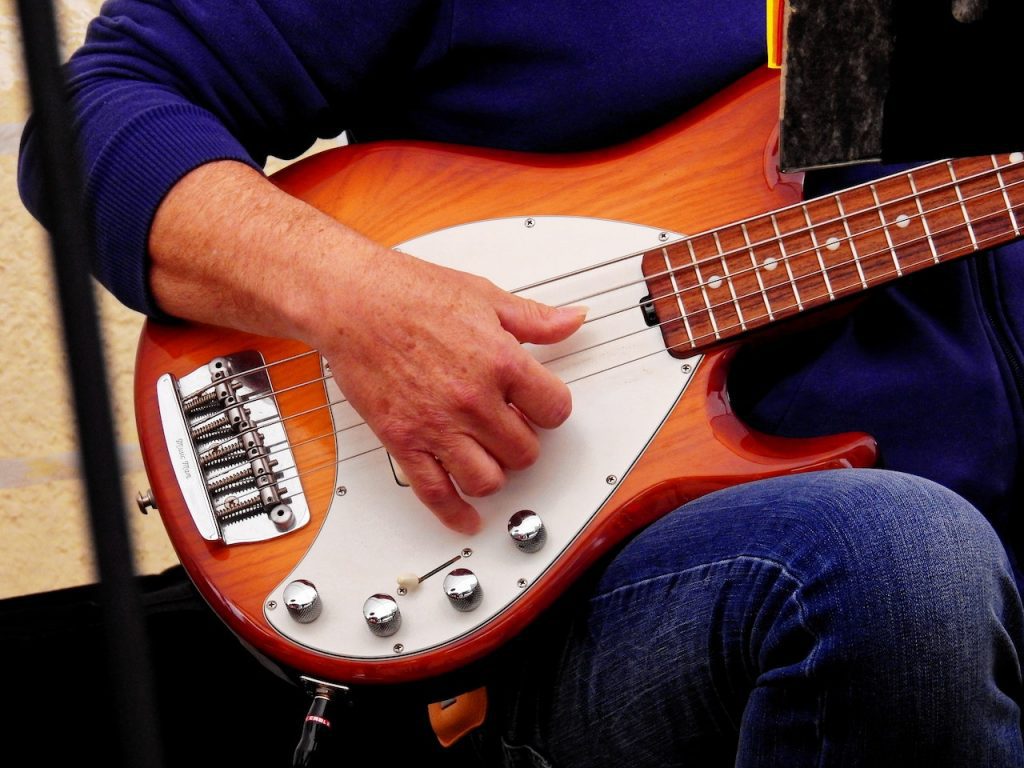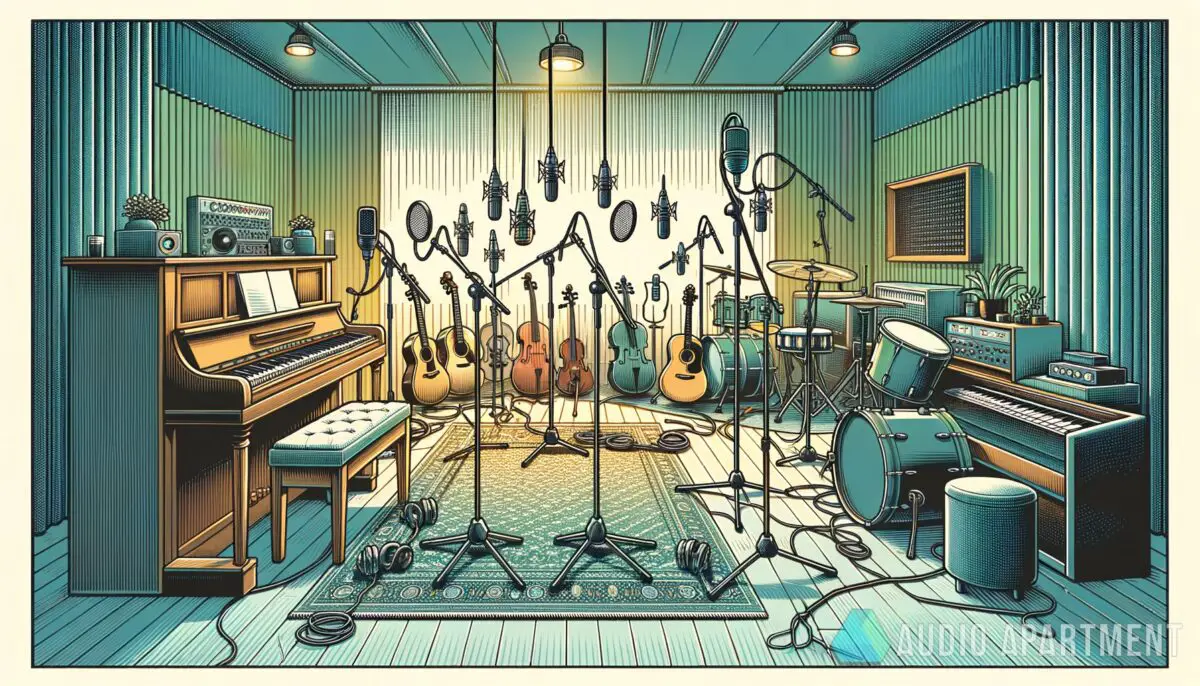Being musicians, we all know how every instrument is important in playing the best songs. But believe it or not, there are still instruments that are getting overlooked. Take the bass guitar, for example. Bass guitars make a big difference in the sound of a band. Yet people still ask: is a bass guitar necessary in a band?
In this post, we’ll break down exactly why bass guitars are essential in a band and how your music can sound without it. So if you’re looking for an extra dimension to your music or are just curious about getting a bass guitar, this post is for you!
Is a bass guitar needed in a band? A bass guitar makes a big difference in a band’s sound. Without a bass guitar, the music can sound thin and lacking in depth. The absence of a bass guitar can also make it harder for the drummer to keep the rhythm steady, as the bass guitar and drums often work together to create a cohesive groove. However, some bands are able to make music without a bass guitar or use other instruments as the bass.
What is a bass guitar?
A bass guitar is a type of guitar that is designed to play low-pitched notes, typically used to provide rhythm and harmony in a band’s music. The bass guitar usually has four strings but can have five or six strings as well and is played by plucking the strings with the fingers or using a pick.

The bass guitar is different from the regular guitar in a few ways. First, it has a longer neck and larger body to accommodate the longer strings and to produce the lower frequencies. Second, the bass guitar is tuned to lower notes than a regular guitar, usually one octave lower.
AKAI Professional MPK Mini MK3

AKAI Professional MPK Mini MK3
Do you need to have a bass in a band?
Without a bass player, your band runs the danger of sounding thin or hollow. You can try changing the mix to make other instruments fill the range of tones the bass usually takes up, but the results are usually muddy and sound fake.
It’s easy to hear how fast a song sounds horrible when the bass track is muted in recording software; many people would say that songs don’t sound proper without the bass, especially if the bass doesn’t line up with the guitars, as with any other instrument, how important the bass depends on the listener’s musical tastes and preferences.
Is the bass guitar underrated?
The bass guitar is often considered an underrated instrument, especially when compared to the more prominent lead guitar or vocal parts in music. While it may not receive as much attention, the bass guitar is a crucial component of many musical genres, providing a rhythmic and harmonic foundation for a song.
…many musicians and music fans recognize the vital role that the bass guitar plays in creating a great song, and it continues to be a valued instrument in many genres of music.
The bass guitar is responsible for anchoring the rhythm section and creating the groove that drives a song forward. It helps to define chord progressions and provides a sense of movement and momentum in a song. Without the bass guitar, many popular songs would lack their signature sound and feel.
Despite its importance in music, the bass guitar often receives less attention than other instruments. This is partly due to the fact that bass lines can be subtle and understated and may not be as flashy or attention-grabbing as a guitar solo or vocal performance.
However, many musicians and music fans recognize the vital role that the bass guitar plays in creating a great song, and it continues to be a valued instrument in many genres of music.
What types of music are played without a bass player?
A bass player is essential to the solidity and force of the sound in certain musical genres, such as rock, hard rock, indie rock, and metal. So too, a strong bottom line is essential for the rhythmic rhythms and forward momentum of funk and Motown-style R&B. However, because of the guitar’s deep lows, a rising number of bass-less metal bands are finding success (like Mantar).
There is not much of a need for a bass player in other types of music, such as soft rock, commercial acoustic pop, folk, and unplugged music. When playing acoustically, guitars are a great choice for filling out the bass end. The keyboard sometimes replaces the bass in traditional rock, pop, and R&B. Fast, gritty, severely down-tuned guitar-based music may also function well without a bassist.
Songs in which the bassline duplicates the guitar’s root notes and rhythm patterns, becoming one with the guitar, often do not need a bass. Many standard rock songs, for instance, include similar bass and guitar parts.
How to make music without a bassist
Most bands need a bass guitar or drum to cover the low end, from 40 to 200 hertz. When a band doesn’t have a bassist, it’s common for a keyboardist, guitarist, or trumpet musician to step in. If your band doesn’t have a bassist, you can usually get by without any of these instruments:
Keyboards and pianos
The 88 keys on a standard piano cover more than 7 octaves. This allows it to be played at low bass frequencies, below 40 hertz. Since keyboardists can play any instrument, they can use square or sawtooth wave sounds to play bass parts. For example, they may play bass sections using organ or brass sounds or imitate a bass guitar played with fingers, thumbs, or a pick.
Guitars
Guitarists must put forth more effort than keyboardists to cover bass parts since guitars are tuned an octave higher than basses. One answer to this problem is the 7-string guitar, which has an extra-low B string to extend the instrument’s bass register. Both 6- and 7-string guitars gain a much lower frequency range when tuned down.
Another option is playing a baritone guitar, which has a smaller range. An effect pedal may be used to lower the guitar’s pitch, making it possible for the instrument to play the lower notes often associated with the bass guitar.
Brass instruments
In brass and jazz ensembles, tubas and Ophicleides often take the place of the bass guitar. These instruments’ lowest notes are between Bb1 and D1, making them lower in range than a bass guitar.
The bass frequencies are covered, but the bass lines played by these brass instruments are more typical of jazz than of rock, pop, or metal. In music styles like ska and ska-punk, it’s not uncommon for a band to use both bass guitars and lower brass instruments.

MIDI and samples
No recorded instruments are unusual in electronic dance music and hip-hop. The bass is often created using MIDI or sampled sounds in these styles. In most cases, the utilization of these sounds is analogous to that of a keyboardist taking on the role of a bassist. Pop and hip-hop artists who don’t perform with a live band often use MIDI or sample-based backing tracks instead of a bassist or a pre-recorded bass track.
If you want even more tips and insights, watch this video called “Does bass matter? Is it even that important?” from the Luke from Become A Bassist YouTube channel.
Frequently asked questions (FAQ)
Do you still have questions about whether a band needs a bass guitar? Below are some of the most commonly asked questions.
What is the purpose of a bass guitar in a band?
The bass player’s job is to provide a connecting tone between the rhythm and melody in a band’s music. It’s the backbone of a drum set. In addition, the bass guitar’s primary role has always been to lend depth to a band’s overall sound.
Are bass guitars easier to play than guitars?
Learning to play the bass guitar may be easier than learning to play the guitar for beginners. One reason for this is that bass guitars have fewer strings than guitars, typically four strings, compared to the six strings of a standard guitar. However, it still requires dedication and practice to become proficient.
Is playing bass with a pick wrong?
No, playing bass with a pick is not inherently wrong. As with many aspects of playing music, it is a matter of personal preference and style. Playing bass with your fingers makes it easier to reach and switch between strings, while a pick makes it easier to play chords and to play individual notes faster. Some bassists, particularly those who play metal, punk, or rock music, prefer to use a pick because it allows for a quicker attack and a more aggressive, defined sound. Ultimately, it is up to the individual bassist to decide which technique works best for them and their musical style.
Conclusion
Whether you need a bass guitar depends on the kind of music you play. But if your band wants to churn out hard-hitting tracks, adding a bass guitar will be beneficial. Also, people with such instruments in their bands have become legends and have won the hearts of millions with their amazing talent and improvisation.
So, are you considering using a bass guitar for your band? And did I cover everything you wanted to know? Let me know in the comments section below (I read and reply to every comment). If you found this article helpful, share it with a friend, and check out my full blog for more tips and tricks on music production. Thanks for reading, and never stop making music.
Key takeaways
This article covered if you need a bass guitar in a band. Here are some key takeaways:
- A bass guitar is a type of guitar that is designed to play low-pitched notes, typically used to provide rhythm and harmony in a band’s music.
- Without a bass guitar, the music can sound thin and lacking in depth.
- The bass guitar is responsible for anchoring the rhythm section and creating the groove that drives a song forward.
- Songs in which the bassline duplicates the guitar’s root notes and rhythm patterns, becoming one with the guitar, often do not need a bass.
- Some bands use other instruments such as the keyboard or the guitar to cover the bass.















